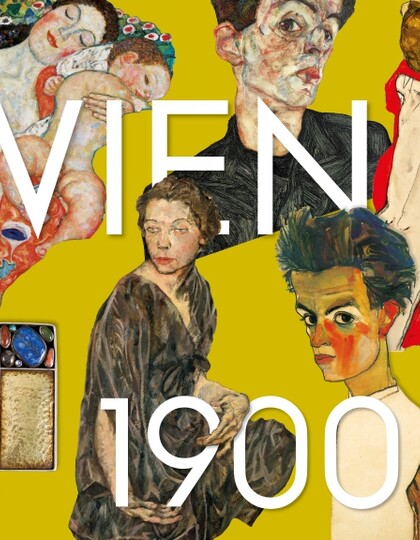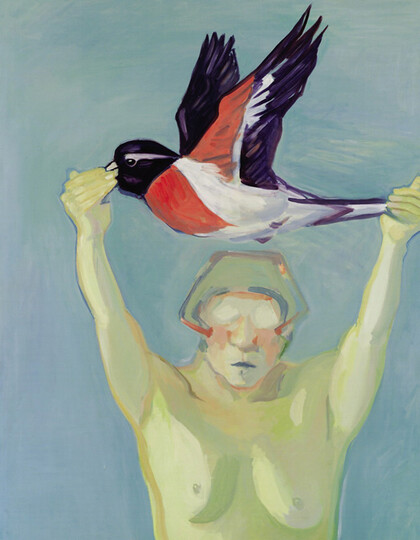06.03.2019 to 06.03.2019 - mumok
mumok Kino: Third from the Sun (2)
LITERATURE & DISCOURSE, ART


Self-inflicted catastrophe or a cosmic joke? Our planet is not doing well. From day to day, we see this more clearly. Images of rubbish heaps, plastic in the oceans, and the drastic recent effects of climate change point to a dark future. In the early 2000s, Dutch chemist Paul Crutzen coined the term Anthropocene for the irrefutable traces that humankind leaves on the earth and in the atmosphere. Since then, artists and filmmakers have taken ever greater interest in this drastic situation, whose underlying causes are often more complex than many evident ecological disasters would suggest.
The series in four parts, Third from the Sun, looks at artistic approaches that reveal the specific symptoms, manifestations, and effects of the Anthropocene. The focus is less on warnings or shocking images of catastrophe and more on the forms of implication in largely irreversible processes. The first part (Dark Star – After the Catastrophe) illustrates the ways humankind has shaped our environment, also by utilizing visionary counter images. The second part (Earthbound – Resistant Natures) explores the strength and resistance of the “natural,” without ignoring the role of the still dominant human subject. The third part (Electric Warriors – Last Humans) takes a closer look at the views, intentions, and future prospects of this human subject, which is in danger of ever further irrelevance given the escalation of the problem, but which can see this situation as an opportunity too. The fourth and final part (Stone Free – The Time that Remains) considers the latency or potential of whatever has not yet become reality, but is the germ of change in relation to our traditional understanding of nature and the environment. Planet Earth is blue, and there’s nothing we can do?
Curated by Christian Höller
Teil 2: Earthbound – Resistant Natures
“Earthbound,” meaning our connection to the Earth, is a key concept in our understanding of humankind’s situation in the Anthropocene. But what if the Earth—whether envisaged as “mother nature,” “Gaia,” or “Cthulhu,” can withstand much less connection than we usually assume? What if an inescapable resistance is built into the relationship between humankind and nature, so that this cannot be reconciled either in exuberant harmony or through the arrogance of power? In The Otolith Group’s Medium Earth, this irreconcilability is demonstrated using the example of the geology of California, in peaceful and sometimes esoteric images that allow space for seismic lacunae and puzzles. In his YouTube sampling film, Tue Greenfort looks at the (digital and global) life of the more than five-hundred-million year-old horseshoe crab, perhaps the oldest known lifeform, thereby revealing the most extravagant forms of human behavior. Lisa Rave’s essay film Europium explores the biological, ethnographical, and economic traces of the chemical element of the same name, a rare earth used for high-tech applications. The evening closes with two short works by the group Unknown Fields (Liam Young, Kate Davies). Rare Earthenware traces the trade route of rare earths back to a contaminated radioactive mine in Inner Mongolia, while the final film is a sarcastic montage about energy forms of the future.
Program
The Otolith Group, Medium Earth, 2013, 41 min
Tue Greenfort, Horseshoe Crab, Companion Species YOUTUBE Series, I, 2013/2017, 12 min
Lisa Rave, Europium, 2014, 20 min
Unknown Fields, Rare Earthenware (2015), 7 min
Unknown Fields, We Power Our Future With the Breastmilk of Volcanoes, 2016, 7 min
Presented by Christian Höller, followed by a conversation with Lisa Rave (in English)
-
Christian Höller is editor and co-publisher of the magazine springerin – Hefte für Gegenwartskunst.
Lisa Rave lives in Berlin and teaches at the Academy of Fine Arts Nuremberg. Exhibitions (selection): The Cracks, Not the Mirror, Videonale.scope #6, Filmclub 813, Cologne (2018); Face/Value, transmediale, Haus der Kulturen der Welt, Berlin (2018); The Oceanic, Centre for Contemporary Art, Singapore (2018).






